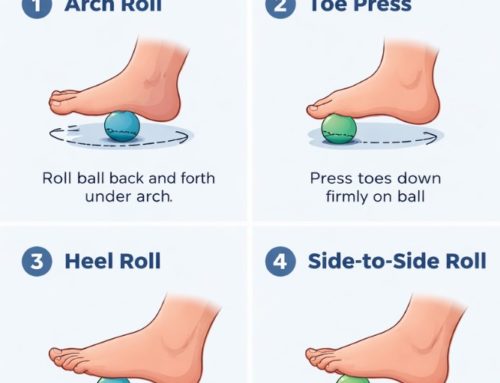How Obesity Quietly Damages Your Heart
Weight gain frequently results from inactivity and poor eating habits. However, genetics or medical conditions may also contribute. Regardless of the cause, obesity may lead to severe heart damage over time. If uncorrected, the issue may not be reversible, resulting in chronic, and sometimes fatal, consequences.
To prevent weight-related heart problems or correct existing issues, your doctor may recommend cardiac rehabilitation. The treatment includes heart-healthy exercises, nutrition education, and counseling to reduce stress and other concerns. Though rehab won’t necessarily cure your cardiac problems, it may prevent future damage.

Obesity and Heart: What Exactly Happens
According to experts, the heart only releases the troponin T enzyme when damaged, including after a heart attack. Those with a body mass index of 35 or higher also have high troponin levels, increasing the risk of heart failure. Several symptoms may indicate such issues, including high blood pressure, increased cholesterol, or inflammation. We’ll discuss the most common signs of heart problems in the following sections.
High cholesterol
Cholesterol is transferred to the blood by low-density lipoproteins. Though it’s a normal function, the cholesterol transport isn’t done correctly when you’re overweight. Instead of moving it along, much of the cholesterol stays in the arteries.
When cholesterol buildup occurs, the arteries narrow. Blood flow is restricted, forcing the heart to work harder. Obesity is a common factor in those with such abnormal cholesterol delivery, increasing the risk of cardiovascular disease.
Hypertension
Hypertension is another dangerous side effect of obesity affecting your heart. According to recent studies, the majority of new hypertension cases correlate with excess body fat. Experts also state that gaining an additional 5% increases the chances of high blood pressure by 20-30%.
Obesity overstimulates the sympathetic nervous system and renin-angiotensin-aldosterone (RAAS) systems. It also alters adipose-derived cytokines, increases insulin resistance, and alters kidney function, resulting in hypertension.
Heart enlargement
The heart works hard to circulate blood throughout the body. Unfortunately, the larger the body, the more difficult this job becomes. Extra weight means the blood has further to go, with higher resistance to get where it needs to.
In those with obesity, the workload often causes the heart muscle to become enlarged. High blood pressure, sleep apnea, and other conditions frequently plaguing overweight individuals may also contribute.
Inflammation
Adipose tissue is an active endocrine organ linked to inflammation. In obese people, the tissue changes, accumulating macrophages and stimulating proinflammatory responses. As the inflammation progresses, several metabolic dysfunctions occur.
Plaque buildup in the arteries results from inflammation, increasing the chances of a heart attack in those with obesity. Other possible complications include hypertension, diabetes, and cardiovascular disease. If the inflammation becomes chronic, the risks for these conditions increase.
Sleep apnea
Sleep apnea is a disorder that causes breathing to pause repeatedly throughout the night. Though it can affect anyone, it’s most commonly reported in those with obesity and may affect the heart.
Pharyngeal fat deposits in the neck rest on the upper airway, blocking airflow. Extra fat on the chest also puts weight on the lungs, preventing them from filling. A stress response occurs, waking you. Heart rate, blood pressure, and inflammation increase, risking cardiovascular problems.
Obesity places a significant burden on the heart, often leading to long-term complications such as hypertension, inflammation, and heart enlargement. While factors like genetics and medical conditions may contribute to weight gain, lifestyle choices remain key to prevention and management. Addressing obesity through exercise, diet, and medical support like cardiac rehab can improve heart function, reduce risks, and help you take control of your health before permanent damage occurs.
Resources:
- Johns Hopkins Medicine, Weight: A Silent Heart Risk
https://www.hopkinsmedicine.org/health/wellness-and-prevention/weight-a-silent-heart-risk - BUMC, New Study Explains Why People with Obesity are at a Higher Risk of Developing Cardiovascular Disease
https://www.bumc.bu.edu/camed/2023/10/02/new-study-explains-why-people-with-obesity-are-at-a-higher-risk-of-developing-cardiovascular-disease/ - PMC, Feb. 2020, Obesity-related hypertension: a review of pathophysiology, management, and the role of metabolic surgery
https://pmc.ncbi.nlm.nih.gov/articles/PMC7082272/ - Brown Health, Jan. 20, 2025, How Does Weight Affect Your Heart?
https://www.brownhealth.org/be-well/how-does-weight-affect-your-heart - PMC, Aug. 5, 2010, Inflammation, a Link between Obesity and Cardiovascular Disease
https://pmc.ncbi.nlm.nih.gov/articles/PMC2929614/ - Sleep Foundation, April 30, 2024, How Weight Affects Sleep Apnea
https://www.sleepfoundation.org/sleep-apnea/weight-loss-and-sleep-apnea
This article contains informational and educational materials and does not replace health or medical advice. For questions or concerns regarding your medical condition or health objectives, speak to a qualified physician or healthcare provider.






Leave A Comment